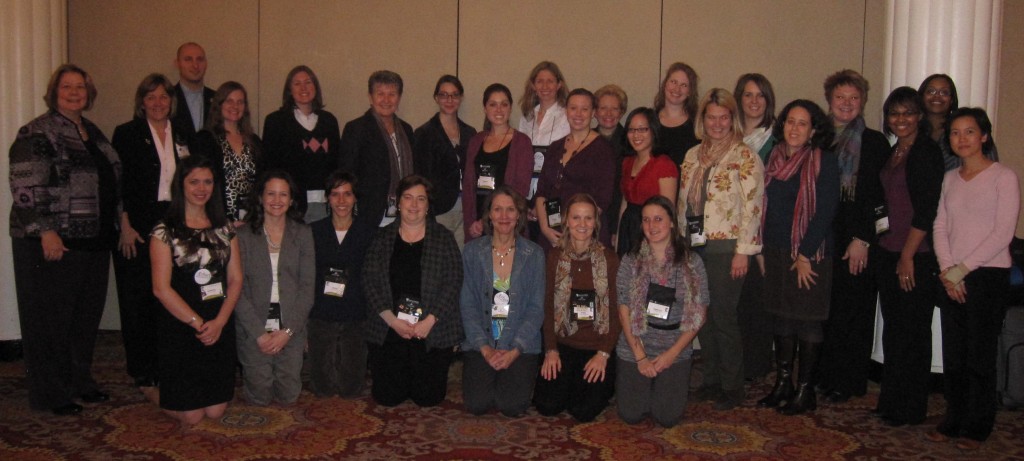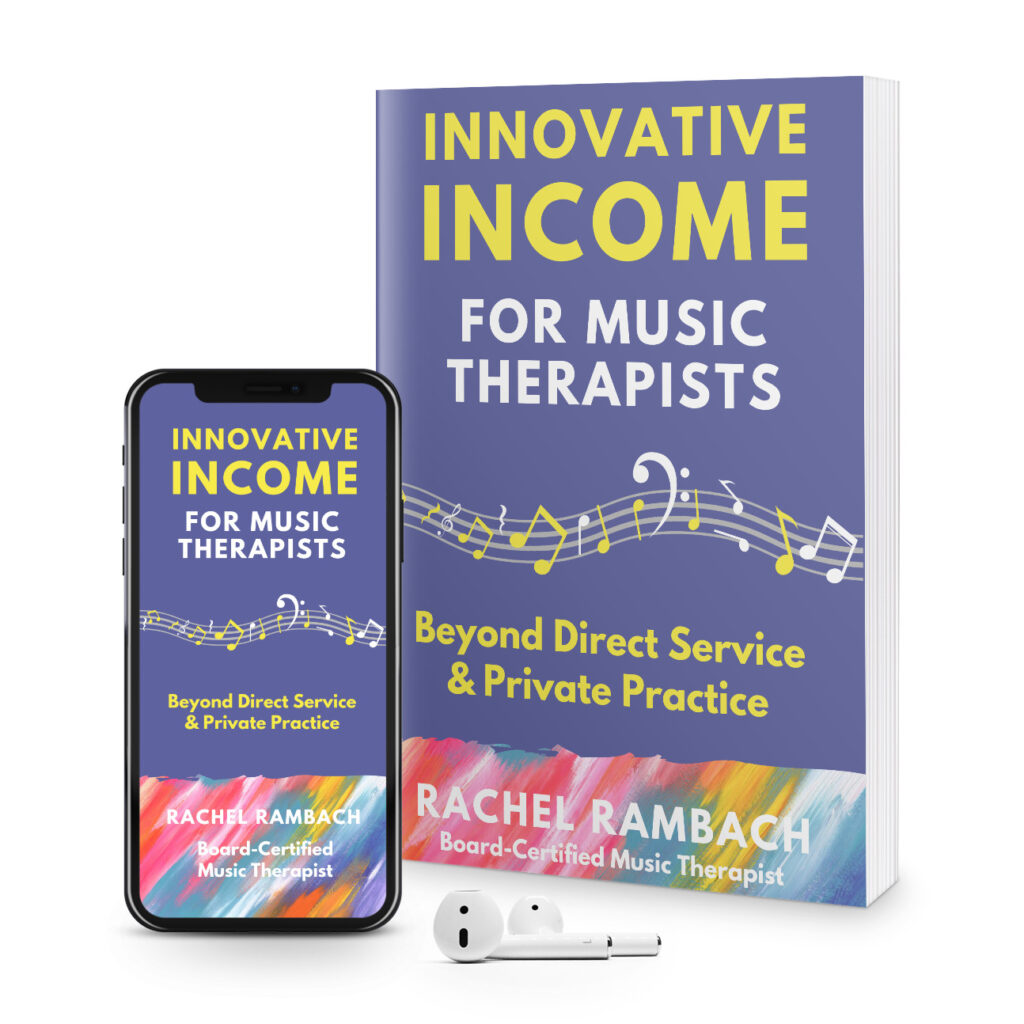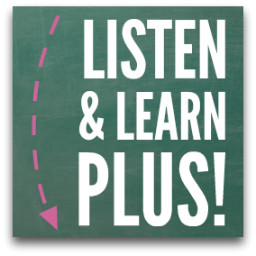
State task force members unite at the 2011 AMTA National Conference.
Silly me…that was literally my first thought when asked back in 2009 to join the Illinois Association for Music Therapy’s State Task Force. Our organization was in the process of submitting a bill to implement a statewide music therapy registry, and the committee is responsible for spearheading government relations.
Despite the word “government” striking fear in my heart, I agreed to join. And I’m so glad I did, because it turns out that government relations is all about advocacy, something I do for the field of music therapy on a daily basis anyway.
What is advocacy?
Advocacy is for everyone. It happens everywhere, any day of the week, any time you are engaging in a professional capacity. You can advocate at every level (e.g. from grassroots to state agencies and governors to national legislators). Any opportunity, any conversation is a way to advocate for the profession.
IAMT held a Lobby Day at the state capitol last March, and that day included visiting legislators to talk with them about our bill and music therapy in general. It was way less intimidating than I thought it would be, because I knew the topic well. The key is to know your audience and tailor your advocacy skills for that audience. It’s just like tailoring your clinical skills for different clinical populations.
The Next Steps
The State Recognition Operational Plan is a national initiative being implemented jointly by the Certification Board for Music Therapists and the American Music Therapy Association. The Plan involves increasing awareness of what it means to be board-certified. The ultimate goal is that, in all situations, the MT-BC be a minimum requirement as a service provision in every work setting.
For those of you who aren’t music therapists: let me explain the MT-BC (Music Therapist-Board Certified) credential. These are the letters that go after a music therapist’s name once he or she has completed a music therapy degree (including an internship) and passed the national board certification exam. There are individuals who call themselves music therapists, and are even hired as such, without having the proper training and experience. This can be detrimental to our field, as you can imagine, which is why the Plan was put into action.
Every music therapist can be a part of this initiative from a more personal perspective. By attending state meetings, reading and responding to state task force emails, and initiating communication with your individual state legislators, you can help to increase awareness of music therapy and the MT-BC credential.
And if you’re not a music therapist? You can still help. If you’re a parent of a child who has received music therapy, write to your state legislators about the positive effects of those services. The same goes if you are a colleague of a music therapist, or even just a supporter of the field. A little effort goes a long way!
Keep your eyes peeled for more ways to join the cause and advocate for music therapy throughout the blogosphere during the month of January. The Music Therapy Maven is a great place to start, along with my Facebook page and Twitter feed!








Rachel, You are so right! It isn’t scary at all! In fact, most of us music therapists do this all the time. Thank you for sharing. It is very empowering to hear someone realize it’s not as bad as I thought it would be, and actually, it’s a lot of fun! Keep at it, and thank you
Rachel Firchau, MT-BC, NMT Fellow
Government Relations Representative WRAMTA
Hi Rachel! Thank you very much for reading. So true that it *IS* actually fun! Keep up YOUR great work :)
I appreciated reading your perspective on advocacy. As someone who is beginning to work full-time in the field after having graduated a few years ago, the advocacy process has been challenging for me in that I hadn’t yet quite found my “niche” as a music therapist nor had the confidence that comes from actually doing the work.
I sense that shifting now as I work in hospice, but I wonder how many other music therapists out there may find themselves feeling the same way about their ability to advocate for themselves and the field?
Yet at the same time, increased advocacy leads to increased opportunities, so it’s up to all of us to do.
Faith Halverson-Ramos, MA, MT-BC, NMT
Hi Faith, thanks for the comment. I absolutely agree — not only does advocating help the field itself, but it also (at least, from personal experience) takes you to that next level as a music therapist.